Reviews
John Schlesinger
USA, 1976
Credits
Review by Josh Bell
Posted on 18 April 2012
Source Digital projection
Categories TCM Classic Film Festival 2012
The New York City of Marathon Man so thoroughly radiates anger and violence that even if a notoriously cold-blooded Nazi doctor didn’t come to town to terrorize timid grad student Tom “Babe” Levy, it seems inevitable that something horrible and painful would happen to him anyway.
The sadistic Dr. Szell only feels the need to come out of hiding and head to New York in the first place because of a freak only-in-NYC moment at the beginning of the film: Just after he’s smuggled some of Szell’s ill-gotten diamonds out of a safety deposit box, the evil doctor’s brother invokes the ire of a seemingly mild-mannered older Jewish man, thanks to the German’s car stalling in the middle of the street. The German and the Jew engage in an increasingly hostile car chase through the city streets, culminating in an accidental inferno that engulfs them both. There’s no deliberate effort to eradicate former Nazi officers or vendetta on the part of the same ex-Nazis to target Jews. It’s just two New Yorkers, perpetually on edge, taking road rage way too far.
Babe seems at home in that cauldron of hostility, at least at first: He cheerily jeers back at a guy who insults him on his daily run in Central Park, and he tolerates the jokes of the thugs who live across the street from him. But Babe is also naïve, sheltered in his graduate studies at Columbia, where he’s working on a history thesis and living in the shadow of his famous father, who committed suicide after being accused of being a Communist.
The darker world lands on Babe’s doorstep, literally, when his brother Doc, a secret agent whom Babe thinks is an oil executive, shows up dead at Babe’s apartment and inadvertently places Babe in Szell’s crosshairs. The movie’s most famous moment is Szell torturing Babe via dental implements, but the slow-burning dread that leads up to it is just as intense, with Doc dodging assailants and meeting mysterious figures in the shadows. For a while, it feels like Doc and Babe are starring in different movies, with Babe in a gritty urban drama and Doc in a tale of international espionage, although both Doc’s Paris and Babe’s New York are dirty, crowded places plagued by union strikes.
Once the two worlds collide, Marathon Man starts to resemble other paranoid 1970s conspiracy thrillers like Three Days of the Condor and The Parallax View, and Dustin Hoffman’s performance as Babe recalls his earlier role as a nebbish pushed beyond the breaking point in Straw Dogs. But while Hoffman’s character in Straw Dogs eventually reveled in violence, Babe always seems uneasy with it, even when he’s ruthlessly tracking down Szell and the others responsible for Doc’s death during the movie’s third act. He isn’t one of the New Yorkers driven over the edge by the city’s toxic atmosphere; he’s a man who does what needs to be done, and then pulls himself away. He never stoops to Szell’s level.
Szell himself doesn’t show up until 40 minutes into the movie, but his presence hangs heavily over everything that comes before. Laurence Olivier’s Oscar-nominated performance is a masterpiece of calm, cold menace, and the infamous dental-torture scene is disturbing as much for the detached way Olivier plays it as it is for the whir of the drill. In contrast to the constant grit of the city, Szell is an anachronism, always well-dressed and composed even when he’s on the verge of being eliminated. In the end, the chaotic mess of New York wins out over the meticulous violence of the Old World.
More TCM Classic Film Festival 2012
-

Girl Shy
1924 -
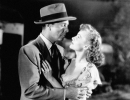
Cry Danger
1951 -
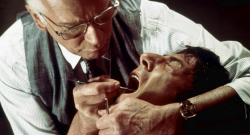
Marathon Man
1976 -

Counsellor at Law
1933 -
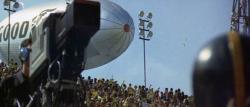
Black Sunday
1977 -
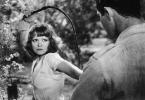
Call Her Savage
1932 -
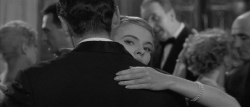
Bonjour Tristesse
1958 -

The Women
1939
We don’t do comments anymore, but you may contact us here or find us on Twitter or Facebook.



